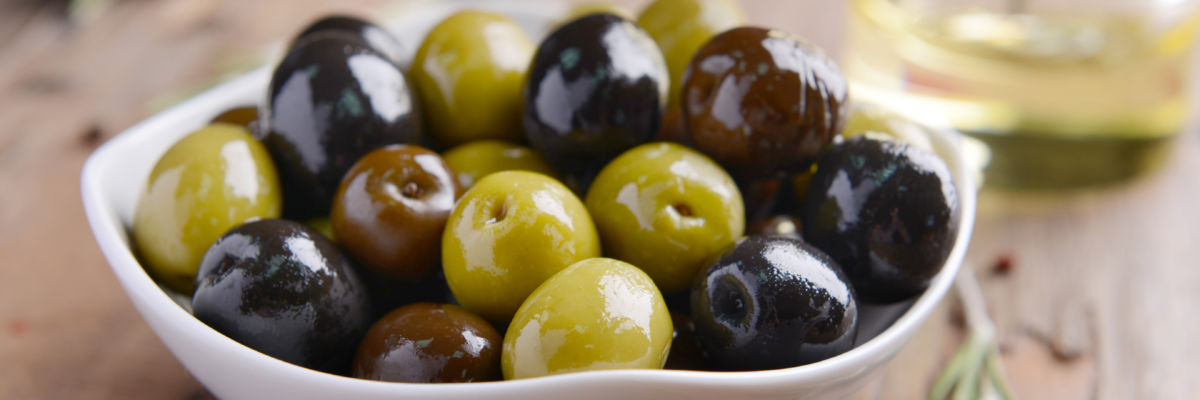
De gustibus non est disputandum. On matters of taste there can be no dispute. Or, more commonly, there’s no accounting for taste.
I want to think this morning about taste.
Most of us, probably, accept without much thinking about it that the old axiom is true. There are questions, of course, about what constitutes a matter of taste. But few of us would really disagree that once you do find that mystical territory of taste, rational argument doesn’t enter into it. Some people just like chocolate, and some don’t. Some people like broccoli, and some don’t. These are, quite clearly, matters of taste. We may think those with different tastes are stark raving mad, but few of us would, at the end of the day, really consider different taste to be a fault, much less a sin.
Much ink has been spilt—and some blood too—on questions of whether a particular thing is a matter of taste. We extend the notion of taste beyond eating and drinking to anything regarding personal preference. Here we need only throw out the big three subjects that, we are told, should never be mentioned at dinner—sex, politics, religion—to get an inkling of the fact that one man’s indisputable personal preference is another’s heresy; one woman’s most deeply held and axiomatic truth is another’s optional matter of taste. So many of the most visible controversies of our time center on this question of taste—or not, because whether or not they have anything to do with taste is exactly the question. There can be no disputing a disputation about taste, because there can be no disputing taste, and so the question is whether one can properly dispute anything at all.
Liberal democracy is, it seems, designed to encompass the widest variety of taste, of personal preference. In this country we do not believe that there is such a thing as “the common good,” unless by the common good we mean that everyone is free to pursue his tastes with no limitation except the parallel freedom of others. What this means, practically, is that consuming high-fructose corn syrup is legal, whereas cannibalism is not. This legal structure has nothing at all to do with the moral virtue of each of these actions, though they both probably fall short of full goodness. Still, one kind of vicious eating is allowed, while another kind is forbidden, on the grounds that one “taste” interferes with another person’s free ability to pursue his own tastes.
Now, if you buy all that, and you think that’s the way it should be, I’m afraid that what I’m about to say will seem in very bad taste.
I do not believe in taste.
Let me be clear: I do believe in the sense of taste, by which we are drawn to good things—say, pain au chocolat—and repulsed from disgusting things—say, skunky beer. I also believe that we do not have any direct control over this sensory apparatus, and by extension over desire and repulsion and preference in general. Nonetheless I do not believe that taste, and personal preference in general, should not be discussed and disputed. I think we should remove the non from that old axiom. De gustibus disputandum est. On matters of taste there must be dispute.
Why is this? Taste comes up frequently in Scripture. We can sum it up with that wonderful verse of Psalm 34: “O taste, and see, how gracious the Lord is: blessed is the man that trusteth in him.”
God’s goodness, God’s graciousness—whether in the food he gives Elijah in the wilderness or in the bread of heaven that is the flesh of Jesus Christ—is not simply “a matter of taste.” The psalm does not say: O taste, and see whether or not the Lord’s graciousness suits you. The Lord does not say: I am the bread of heaven for some of you; others may prefer the chips of heaven.
Here we confront, as we so often do in Scripture, that scandalizing exclusivity of the gospel that extends even so far as to taste.
Surely, some of you must be thinking, he doesn’t mean to eradicate all difference, to reconfigure the Church’s mission as a quest to make everyone like olives.
And no, to put your mind at ease, that is not what I have in mind.
But we do have to confront, if we take divine revelation seriously, the fact that not all tastes, all preferences, are neutral. Tastes may be, in some sense, morally neutral, because morality has to do with the will. But to say that something is morally neutral is not the same thing as saying it is utterly indifferent. Because they lack moral reason, cats and dogs can be neither moral nor immoral; they simply are what they are by nature. But this does not mean that cats and dogs are not, in the created order, good.
Some tastes are in fact better than others, and this fact transcends specific moral acts. It is better to have a taste for heavenly things—for example, the graciousness of God known in the Blessed Sacrament—than to have a taste for earthly things, however good they may be in themselves.
So we have to see the problem here: on the one hand, there really is no accounting for taste; desire comes to us by nature and not by will. On the other hand, as human beings, as moral agents, we live not only by nature, but also by will. In other words, we have some say in our actions, in what we do with our tastes.
How, then, can we ensure that we want the right things, that we enjoy the right things? How can we prepare our tastes so that, when we reach the heavenly banquet, we might find it pleasing to our spiritual senses?
It may be that we still find this an odd question. How could we possibly not like the heavenly banquet? How could we not like the presence of the all-loving God of eternity? Well, there’s no accounting for taste, but . . . in some visions of eternity, “taste” is exactly the difference between heaven and hell. C.S. Lewis, in The Great Divorce, gives an image of hell where the damned stand right in the midst of heaven, so to speak, but because they despise it, because they find it distasteful and disturbing, what for the saints is eternal joy is, for them, unimaginable pain. This is at the heart of what it means to say, as Christians always have, that sin affects everything. It’s not that our actions are always wrong, or that we have no moral worth; it’s that our spiritual taste buds have gone off kilter.
There must be, then, a way of training our tastes, of catechizing our preferences, so that they can better desire and appreciate the good.
We do this all the time. It is not that we just decide to change our tastes, but we form them, bit by bit, over time, in ways that move them in new directions. All serious human relationships are like this: we find that our desires, while still our own, can be gently shaped by another through years of friendship or marriage. Dieters rarely start out with a deep preference for healthier food; they have to develop habits. Some people are just born to love single-malt Scotch. Some people learn to love it over time.
In this broken world, God is often an acquired taste—but an acquired taste that nonetheless touches all that is most real and most natural about us. Grace does not destroy nature, but purifies and elevates it. Likewise, grace purifies and elevates our tastes—both physical and spiritual—so that what was once strange, bland, off-putting, is now the deeply satisfying sophistication of a good wine.
And if, with God’s grace, we can begin to reform our tastes, to make them what they were always intended to be, the only thing left is to set about doing it—to follow through with those promises made at holy baptism: to repent from our sins and practice doing good; to give ourselves to the life of Holy Church; to let the Blessed Sacrament penetrate every part of our being, so that our tastes, our desires, become one with those of our Lord Jesus Christ.
This unity of taste, this unity of desire, may seem a frightening thing. But that is only because we have accepted the lie that our tastes define us, that without them we have no identity.
Brothers and sisters, our identity is in Christ! The Church is his new creation, his holy bride. As members of that body, you and I can have no private desires, no private tastes, apart from those of the head. But each of us knows that desire, that taste of God’s love, in a different way, just as no two people taste exactly the same thing when they taste something good. This is true diversity, the diversity of the heavenly chorus, where each voice sings in its own way the same song, where each soul knows herself loved uniquely by the same love, each mouth can say, with its own delight, “O taste and see how gracious the Lord is.”



